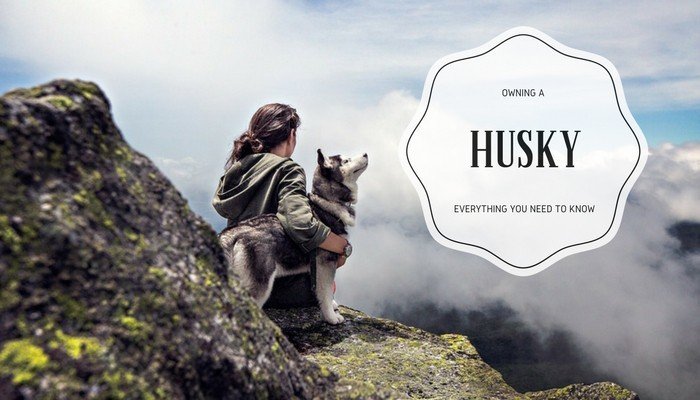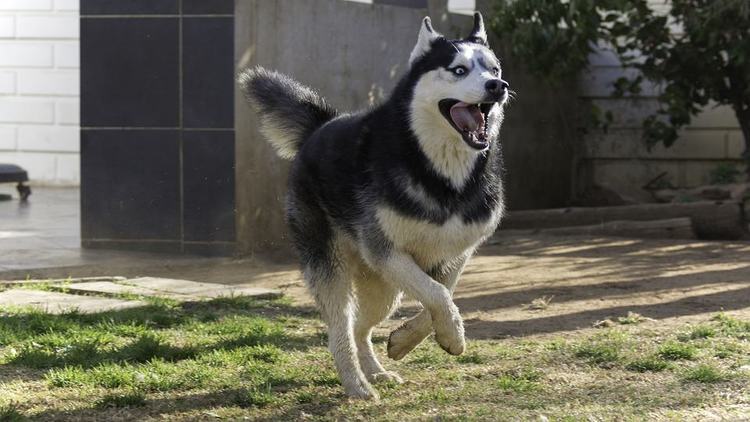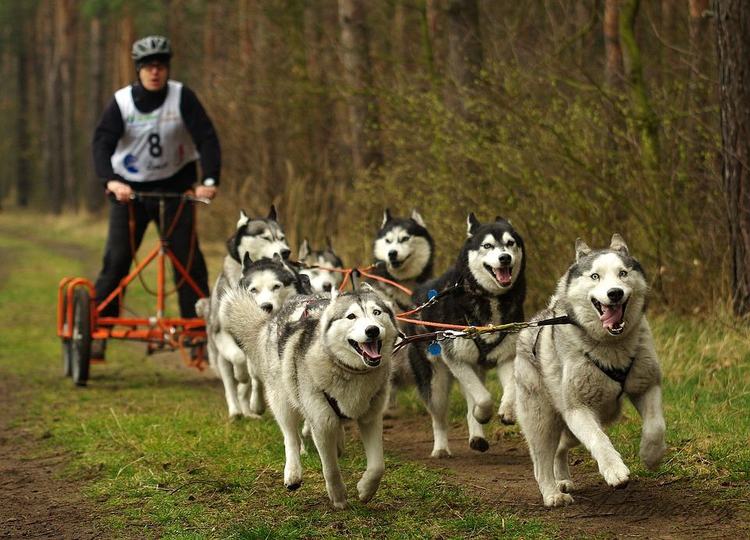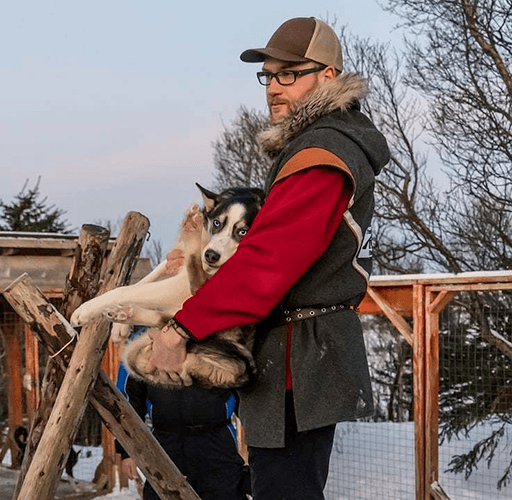When it comes to owning a husky, you should think carefully about whether you’ll be able to provide the best environment for this beautiful dog.
Siberian husky care isn’t necessarily easy and lots of people suffer from husky allergies as well — but the rewards these pups can offer usually more than makes up for any pitfalls.
Let’s see exactly what you need to know before you get a husky.
Should I Get A Husky?

Adopting any dog is a significant life-changing decision, and adopting a husky is no different.
This is not an apartment dog. The husky has various needs that require a major commitment in both time and money. That said, the husky is a wonderful dog.
Here are some of the things you should consider, beyond the impulsive “I want a husky!!“:
The Personality
Huskies are very intelligent dogs and are easy to train, as long as you put the time and effort in to train them regularly.
For starters, Siberian Huskies are pack dogs and need a leader in order to be controlled. Owners need to assert themselves as the ‘alpha’ of your family pack and be aware that, from time to time, huskies will test your authority as leader.
Regular training — as in a couple of short sessions every single day — will improve your husky’s behavior and show them that you are the leader.
You shouldn’t get a husky if you can’t commit to regular training.
While huskies have that wolf-like beauty, they are very friendly dogs. They are good with children, strangers, and other dogs.
Still, you should never leave a child alone with your husky: the same with any large dog.
Huskies may not get along with cats unless they’re introduced early: small animals may trigger their hunting instincts and your cat may look like an appetizer.

^This is not what your cat wants to see in the minutes leading up to Mr. Husky’s dinner time!
Regardless, they are not aggressive dogs. This also means they are terrible guard dogs, but their wolfine appearance does deter burglars pretty well.
Another thing is that huskies do not bark – they howl. They enjoy howling with other dogs and at loud noises. It isn’t a big problem for most huskies, but it is something to be aware of.
Unless they are well trained, huskies aren’t ideal for apartment homes.
How Big Do Huskies Get?
A general guideline for the average size of an adult husky is about 20-23 ½ inches, weighing about 34-60 lbs.
At that size, people caught unawares can easily be knocked over by an excitable husky.
Adult huskies can be tough to physically handle, which is why it is so important that are trained well early on.
It also makes weight management extremely important. You don’t want to be trying to control a husky that is heavier than it should be.
See more: our husky weight management tips.
Siberian Husky Care Requirements
Grooming
Huskies need to be groomed frequently to reduce the bulk of the massive amounts of shedding they do around the year. A weekly brushing at the very least to remove dead hair is imperative, unless you want hair all over your home!
See more: How much do huskies shed?
They have double coats that provide the insulation they need to survive in cold environments, which sheds abundantly to prepare new coats for summer and winter.
The top coat protects the dog’s coat and skin and moderates the dog’s temperature in different kinds of weather. The undercoat keeps the dog warm during the winter by retaining heat, and thins out during the summer months.
A question that a lot of interested husky owners ask is, “Are huskies hypoallergenic?”
Unfortunately, they are not. They shed throughout the year, which will get husky allergies acting up and no one wants to have that.
There’s no such thing as a short haired husky, so bear in mind that you’ll have to deal with a lot of shedding when you own a husky. A dog hair vacuum will certainly come in useful.
Exercise
Huskies are high-energy dogs and need lots of exercise.
Their breed is suited to pulling heavy loads and have a lot of pent up energy if they aren’t given work.
Idleness will lead huskies to getting themselves into trouble – digging up your gardens, destroying furniture, and being a noisy dog overall.
Make sure to take them for a long walk everyday, as well as play time and daily training.
See more: husky exercise tips.

It is very important you don’t take them off the leash when taking walks, because they may bolt if given the chance. Unless you are prepared to chase them down, make sure they are securely leashed.
We cannot emphasize this enough: Siberian Huskies have the sole desire to run to their heart’s content.
It is important that they have an outlet to expend this energy so they are healthy and happy.
Enclosure
Full-sized huskies should have a designated space outdoors and it should be fenced off so they can’t escape.
Do not use an “invisible barrier” where the dog is given a shock when it crosses an invisible boundary. Siberian Huskies will often bear the shocks so they can continue running.
They need a physical barrier to remind them of their boundaries.
The fence should be at least five feet high with a deterrent to stop the dog from digging underneath the fence. Cementing the fence into the ground is a good way to stop a husky from escaping. Do check the fence for holes that the husky could escape through.
They are surprisingly foxy and capable of slipping through small spaces if given the opportunity.

Husky Owners: What To Expect!
As you should be able to tell, adopting a Siberian husky can be hard work.
Here’s what you should be prepared for:
- You need to assert yourself as the Alpha early on
- Daily training
- Daily exercise
- Outside space to roam (but supervised not to run off)
- Lots of shedding so regular brushing
- Good with children but supervision required
- May not be good with cats
- Not good guard dogs
- Physically large and strong
- Average lifespan of 12-15 years
If you can handle all that, the husky is a wonderful breed and will repay your love in spades.
See also: 21 stunning pictures of miniature huskies.
Are you up for the challenge of owning a husky?
